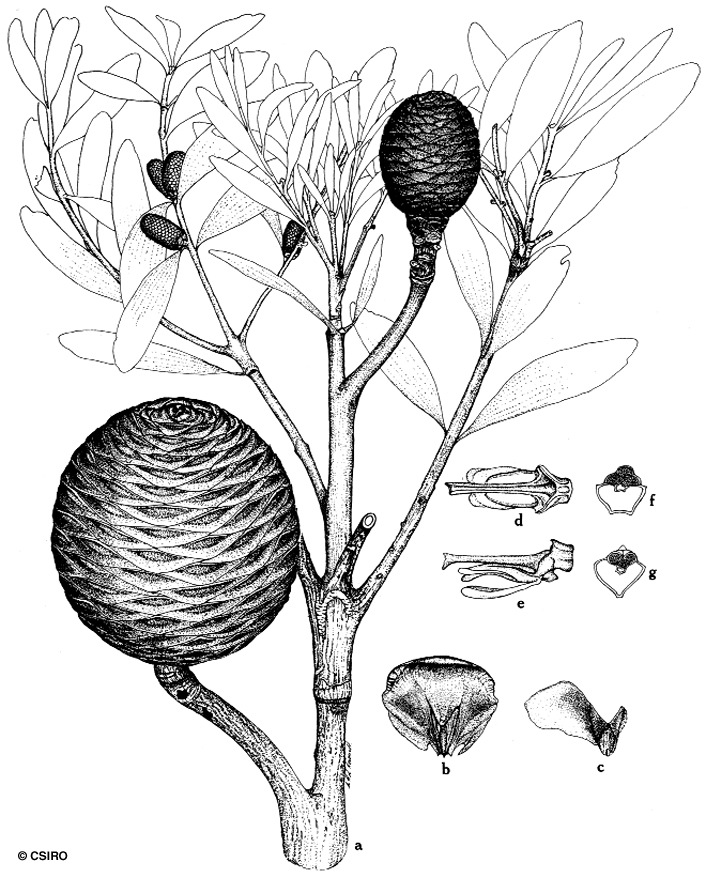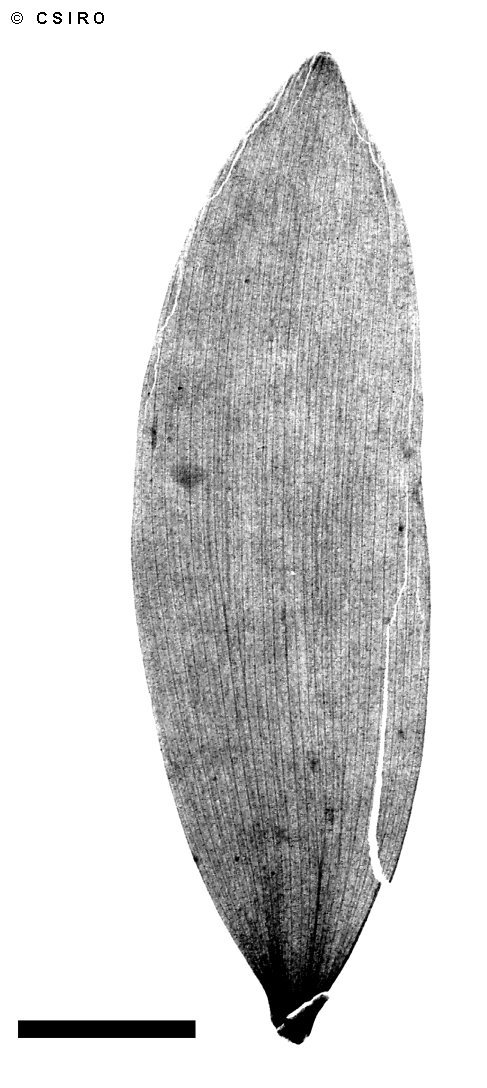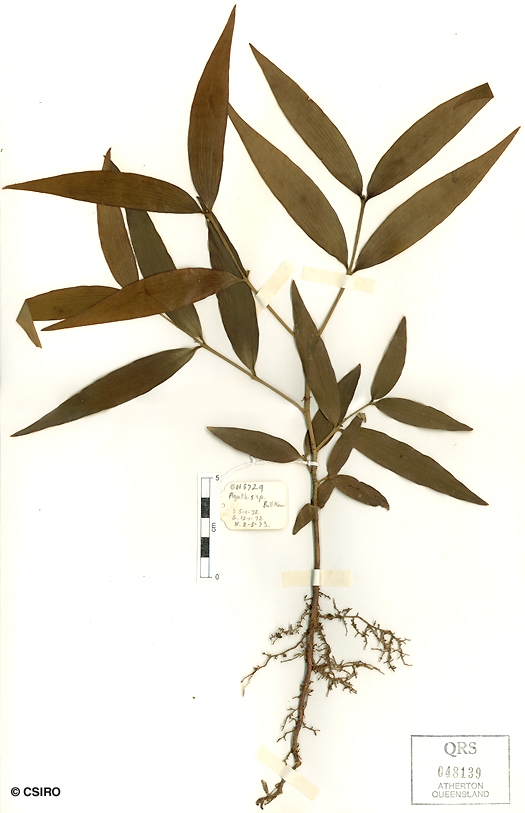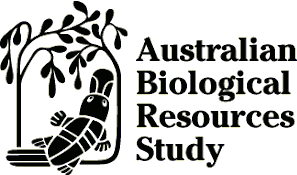Australian Tropical Rainforest Plants - Online edition
Agathis microstachya J.F.Bailey & C.T.White




Bailey, J.F. & White, C.T. (1916) Queensland Department of Agriculture and Stock. Botany Bulletin 18: 14. Type: High lands of ranges in the Cairns, Atherton, and Herberton districts, H.W. Mocatta, District Forest Inspector. holo: BRI; iso: MEL.
Black Kauri; Bull Kauri; Kauri; Kauri, Bull; Kauri, Black; Kauri, North Queensland; North Queensland Kauri; Pine, Queensland Kauri; Queensland Kauri Pine; Kauri Pine
Leaf blades about 2-9 x 0.5-2.5 cm. Veins fine and close, running +/- parallel to the blade margin.
Cones more than 6 cm diam. each with about 150-220 scales.
Cotyledons lanceolate with a number of veins arising at the same point at the base and continuing +/- parallel to the apex. Cataphylls are produced above the cotyledons and after lateral shoots are produced. At the tenth leaf stage: leaves elliptic, apex acute, base cuneate; venation fine and close, running parallel to the blade margin; seedling glabrous. Seed germination time 7 to 9 days.
Endemic to NEQ, restricted to the Atherton Tableland area. Altitudinal range from 600-1000 m. This species grows in a variety of rain forest habitats but it tends to be close to the boundary of rain forest and wet sclerophyll forest. Trees can attain massive dimensions and the species has gained quite a reputation as a timber tree but it must still be regarded as a rare species.
This species is quite rare and is only found on the Atherton Tableland. Some of the largest Kauri Pines logged in North Queensland belong to this species. The girths of some trees are impressive, although the log lengths tended to be on the short side. Trees with girth breast high of 30 feet were not uncommon, but their number today is some what reduced and large trees tend to be found only in special reserves. Some fine specimens are present in Lake Barrine National Park
The timber of this species has had a wide range of used and is more or less comparable to Araucaria cunninghamii.
Wood specific gravity 0.48. Cause et al. (1989).





